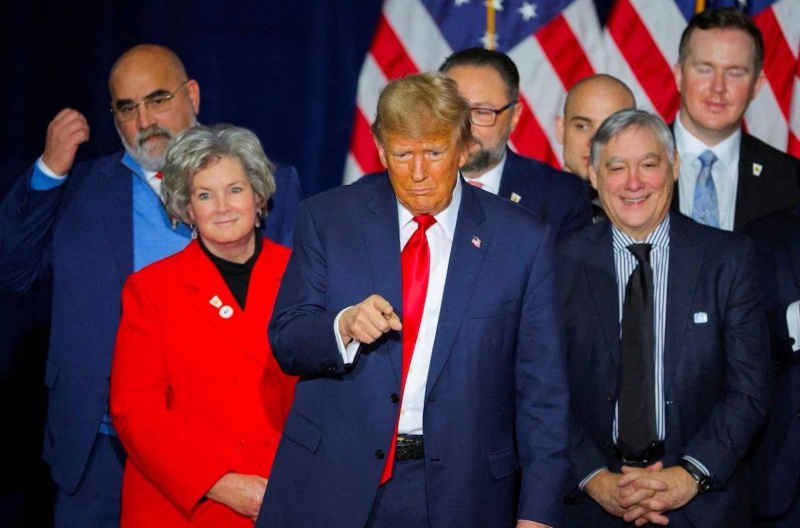Donald Trump will officially assume the U.S. presidency on January 20, 2025. However, with the announcement of three key White House appointments on November 25, he effectively finalized his team. The lineup is eclectic, ranging from respected members of Congress to a former wrestler and several controversial television personalities. For instance, the incoming Director of National Intelligence will be a former Fox News personality known for spreading Russian disinformation about American biolabs in Ukraine. Unlike Trump’s first term, which was marked by infighting and high turnover in the White House, his new team appears more unified. All candidates for top positions share unwavering loyalty to Trump and a commitment to reshaping America — and, potentially, a significant part of the world. However, the global implications of their accession to power remain uncertain.
When Donald Trump unexpectedly became president in 2017 — even to his own surprise — he was a Washington outsider with no political or administrative experience. He had minimal influence within the Republican Party and lacked connections to conservative think tanks, nonprofits, and the industry lobby groups that traditionally serve as talent pools for new administrations.
This resulted in the formation of a chaotic team composed of campaign staffers, former business partners, friends, and even family members — mixed with seasoned Republicans whom Trump barely knew and who were brought on as much to appease the party establishment as to satisfy Trump’s preferences.
Conflicts erupted within the White House among members of the president’s inner circle. For example, his radical advisor, Steve Bannon, clashed with daughter Ivanka and her husband, Jared Kushner. Within a year of Trump’s inauguration, nearly half of the White House’s senior staff had been replaced, and by the end of his term, the turnover rate reached a record 92%.
Within a year of Trump’s inauguration, the turnover rate reached nearly 90%
During Trump’s first term, 14 cabinet members left their posts. Some, like Defense Secretary Jim Mattis in 2018, resigned over policy disagreements. After the January 6, 2021 Capitol riot, several dozen officials, including four cabinet members, resigned in protest mere weeks before the end of Trump’s term.
When Trump announced his 2024 candidacy, even his former Vice President, Mike Pence, declined to support him. Pence’s role will now be filled by Ohio Senator J.D. Vance. Of the 42 people who served in Trump’s first cabinet, only about half endorsed his bid for a second sting in the White House. Trump replaced them with individuals more personally loyal to him — and he secured a second electoral victory without their help.
During his first presidency, Trump dismissed his transition team leader, Chris Christie, before taking office, forcing the administration to start staffing from scratch. The delay meant key appointments took months to finalize. This time, Trump approached the process with greater preparation. His transition team, tasked with personnel decisions, has been led from the outset by billionaire campaign donors Howard Lutnick and Linda McMahon. McMahon, one of the few holdovers from Trump’s first administration, previously served as Small Business Administrator.
Lutnick has been tapped for Commerce Secretary despite numerous conflicts of interest tied to his business dealings. McMahon is slated to head the Department of Education, a surprising choice given her background in the professional wrestling organization WWE, which she co-ran with her husband, Vince McMahon. Linda even stepped into the ring herself on occasion. Trump’s campaign pledge to dissolve the Department of Education aligns with this unconventional pick.
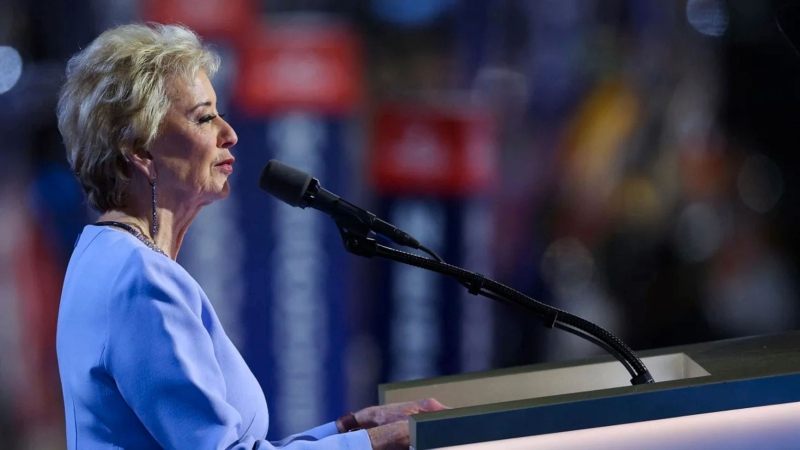
The core of Trump’s new White House team includes key players from his campaign. Susan Wiles will become the first female White House Chief of Staff. A veteran of Ronald Reagan’s administration, Wiles has extensive experience managing campaigns in Florida.
In 2016, she led Trump’s Florida campaign and later joined his inner circle. She reportedly convinced Trump to run again in 2024 and subsequently led his campaign.
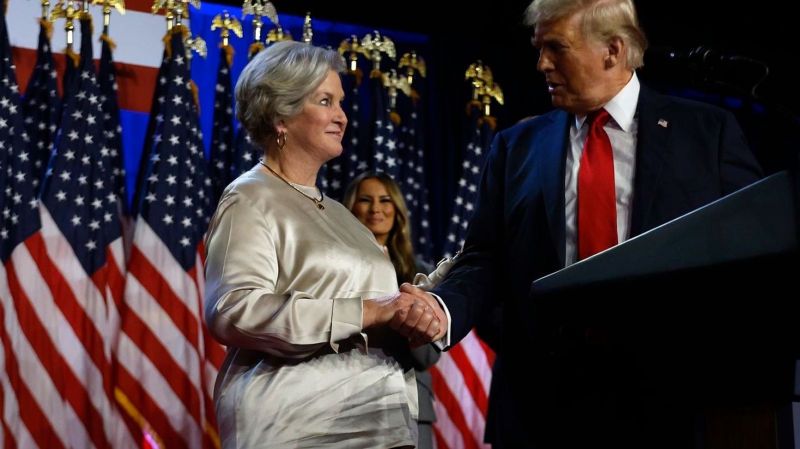
Wiles’ deputies include James Blair, Taylor Budowich, Dan Scavino, and Stephen Miller. Scavino and Miller have worked with Trump since 2016; Scavino managed social media, while Miller, known for his hardline immigration stance, served as a policy advisor.
Steven Cheung will oversee White House communications, and Carolyn Leavitt will serve as press secretary. Both are known for their confrontational approach to the press. Overall, Trump’s new team appears far more cohesive than the ad hoc group assembled at the outset of his first term.
During the campaign, Trump harshly criticized Joe Biden's administration for its failures in foreign policy — from the chaotic withdrawal of troops from Afghanistan to its inability to prevent military conflicts in Gaza and Ukraine. If elected, Trump promised to put an end to these crises, sometimes pledging to do so even before taking office. He also expressed skepticism toward U.S. allies in NATO and the Pacific region, accusing them of not paying enough for their “protection.”
Given this rhetoric, many expected Trump’s foreign policy to be shaped by isolationists like former Ambassador to Germany Richard Grenell. However, Trump ultimately chose representatives of the foreign policy mainstream to fill key posts. The role of Secretary of State was offered to Florida Republican Senator Marco Rubio, who had been a rival during the 2016 presidential primaries. Their competition for the party’s nomination frequently turned undignified, with Trump calling the senator “Little Marco” and Rubio responding by dubbing Trump a “charlatan with a spray tan and small hands.” However, the two have since reconciled, and Trump even considered Rubio for the vice-presidential slot.
The future Secretary of State Marco Rubio dubbed Trump a “charlatan with a spray tan and small hands”
In the past, Rubio was a traditional Republican “hawk,” but in recent years, he has begun shifting his stance, declaring a new era in U.S. foreign policy in which “idealistic fantasies” should give way to prioritizing the country's national interests. Rubio holds a firm pro-Israel position and advocates for confrontation with Iran and China. Like his new boss, he has increasingly criticized NATO allies for their insufficient contributions to collective defense and has stated that Ukraine must make “difficult choices” to achieve peace.
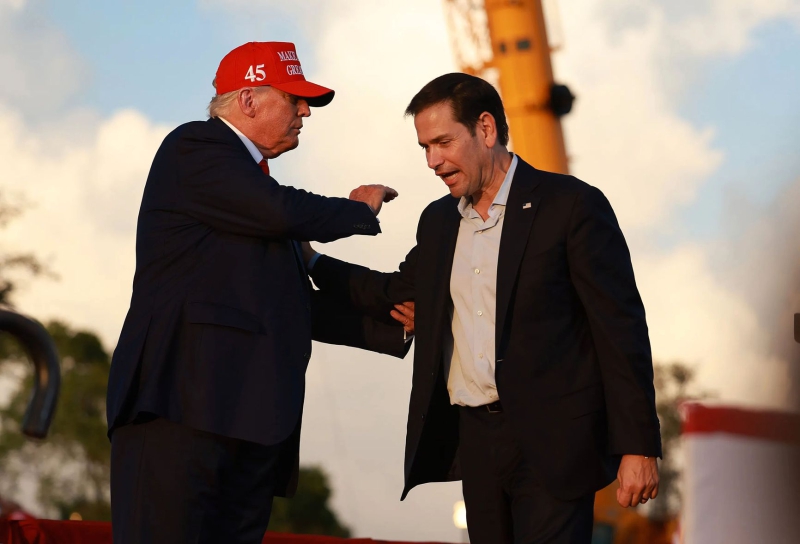
Another Florida politician, Congressman Michael Waltz, has been appointed to the critical role of National Security Advisor. In this position, Waltz will coordinate the actions of National Security Council members — including the Secretary of State, the Secretary of Defense, and America’s intelligence chiefs — while advising the president on foreign policy and national security issues.
Like Rubio, Waltz represents the foreign policy mainstream of the Republican Party. He previously served in the Pentagon under George W. Bush and was an advisor to Vice President Dick Cheney. Waltz opposed the withdrawal of U.S. troops from Afghanistan (where he earnined millions through investments in a company that received government funds to train the local army) and considers China the primary threat to the United States.
Initially supportive of Ukraine in its conflict with Russia, Waltz adopted an increasingly skeptical stance, voting against recent military and financial aid packages. However, after his nomination to serve in the Trump administration, he began discussing potential continuity in foreign policy with the Biden administration and highlighted his collaboration with outgoing National Security Advisor Jake Sullivan.
The role of U.S. Ambassador to the United Nations will go to New York Congresswoman Elise Stefanik. Once considered a moderate Republican, Stefanik is now firmly aligned with Trump. She has previously called the UN a corrupt organization and a hotbed of anti-Semitism, even urging the U.S. to withdraw from it. In early 2022, she advocated supporting Ukraine and pushed for its NATO membership, but Stefanik later shifted her position in line with Trump, voting against new aid packages.
“The UN is a corrupt organization and a hotbed of anti-Semitism,” Elise Stefanik, who will represent the U.S. at the UN under Trump, has said
Matthew Whitaker, the new U.S. representative to NATO, also lacks foreign policy experience. During Trump's first term, he served as acting Attorney General for three months, where he attempted to sabotage investigations into the president — a fact that likely contributed to his appointment this time around. However, in this new role, he will primarily follow the president's directives. Despite not yet having assumed office, Trump has already met with NATO Chairman Mark Rutte.
After his first term, Trump harbored distrust towards national security and law enforcement agencies, believing that many in the Department of Defense and intelligence services were Democrat sympathizers who had sabotaged his policies. As a result, Trump has appointed his most loyal supporters to key positions in this area.
The head of the Pentagon in his new administration will be Pete Hegseth, a prominent conservative TV host. Hegseth served nearly 20 years in the National Guard, participating in military operations in Afghanistan and Iraq, but he lacks leadership experience within the Department of Defense. In 2019, Hegseth persuaded Trump to pardon three soldiers convicted of killing civilians in Afghanistan. At the time, Hegseth argued, “We sent them to do this dangerous, dirty, and difficult job that no one else would do, and then we judge them for how they carried it out.”
As Secretary of Defense, Hegseth promises to restore the combat readiness of the U.S. military and fight the promotion of “left-wing” agendas in the armed forces. For instance, rumors suggest that thousands of transgender people could be expelled from the military. Hegseth has also stated that women should not participate in combat and has called for the resignation of the current Chairman of the Joint Chiefs of Staff, Charles Brown. Although Hegseth was involved in a sexual assault investigation in 2017, he reached a non-disclosure agreement with the woman who accused him of misconduct, so this fact is unlikely to hinder his appointment.
Former congressman John Ratcliffe will become the new CIA Director under Trump. In the once-and-future president’s first administration, Ratcliffe briefly served as the Director of National Intelligence. His nomination back then faced opposition from members of both parties, who argued that he lacked the necessary experience. It is unclear where he might have gained that experience since then.
In a surprising decision, Trump has nominated former Democratic Congresswoman Tulsi Gabbard to serve as his Director of National Intelligence. Like Ratcliffe, Gabbard lacks experience in this field. In 2020, she ran for president as a Democrat but later left the party and supported Trump. Gabbard's appointment has sparked discontent among members of the intelligence community, who accuse her of promoting a variety of false narratives from hostile foreign governments — primarily those of Russia and Syria.
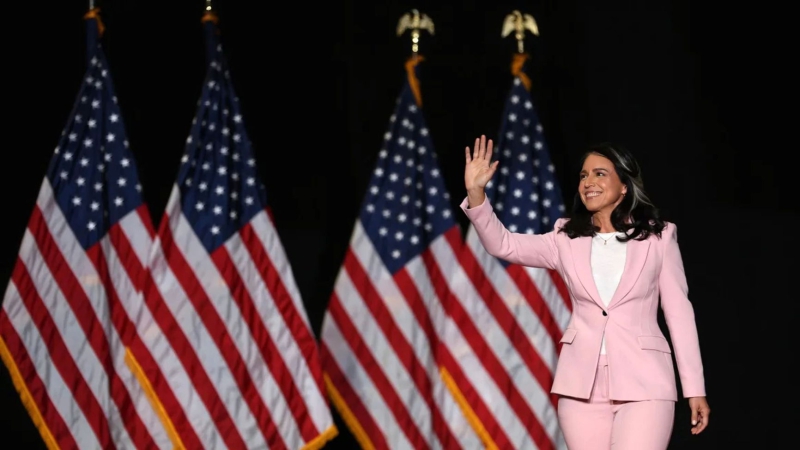
In particular, Gabbard dismissed accusations of Bashar al-Assad's regime being involved in chemical attacks on civilians, and in 2017, she even met with the Syrian president. In February 2022, Gabbard stated that the full-scale war Ukraine began due to Russia's justified concerns about NATO expansion. She also repeated the false narrative about American biological laboratories in Ukraine. As a result, there are concerns in Europe that intelligence data shared with the U.S. could end up in the hands of the democratic world’s adversaries.
Ahead of the election, Trump promised to finish building the infamous wall on the U.S.-Mexico border, to sharply limit the flow of illegal immigration, and to carry out the largest deportation of illegal immigrants in U.S. history. He appointed his former head of the Immigration and Customs Enforcement (ICE), Tom Homan, as the “border czar” and tasked him with coordinating all federal agencies involved in immigration. Homan was dubbed the “father” of the first Trump administration’s policy of family separation, in which children were taken from their parents to be housed in separate facilities, often leaving them unable to reunite for years. The goal was to pressure illegal immigrants to leave the U.S.
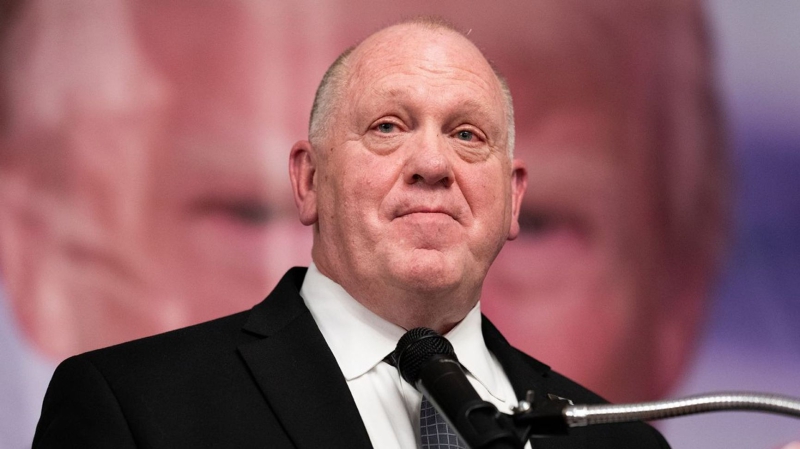
The Department of Homeland Security will be led by South Dakota Governor Kristi Noem. She had previously been a candidate for vice president, but her bid for the second spot on the ticket was hindered by a scandal surrounding the publication of her memoirs. In the book, she wrote that she had shot her dog after it refused to obey — and a goat, after it had charged her children.
Trump initially offered the post of Attorney General and head of the Department of Justice to controversial Florida Congressman Matt Gaetz who, aside from a brief stint at a law firm, has no experience in the judiciary or law enforcement sectors. His main qualification was that Gaetz was one of Trump’s most loyal supporters in Congress.
However, Gaetz’s nomination was derailed by a sex scandal. In 2021, the FBI investigated his alleged sexual relationships with minors — one involving money. No charges were filed against him, but his close associate, Joel Greenberg, was sentenced to 11 years in prison for organizing drug-fuelled sex parties, where, according to witnesses, Gaetz himself was present. Since 2023, a House Ethics Committee investigation has been ongoing into Gaetz. His fellow Republicans complained that he boasted about nude photos of women he had slept with, and he was also suspected of sexual harassment and drug use.
Only a sex scandal prevented Matt Gaetz from becoming Attorney General
After the Ethics Committee refused to release the report on the investigation, several media outlets published materials based on compromising information about Gaetz. According to these reports, he purchased sex, with some of his partners being minors. Most of them also received money from his friend, Greenberg.
Understanding that, in light of the scandal, he would not be able to secure the votes of all Republican senators — and that only three or four defectors from the Republican ranks would be enough to secure his rejection — Gaetz withdrew his nomination. The new nominee for Attorney General was Pam Bondi, who had previously served as Florida's Attorney General. Although she has lobbied for Qatar, Bondi is best known for her ongoing close ties to Trump.
Three lawyers who defended Trump in his criminal cases will also join the leadership team at the Department of Justice. Todd Blanche will take the position of Deputy Attorney General, and Emil Bowe will fill the third-highest position in the department. Both lawyers represented the future president in a criminal fraud case in New York — one in which Trump was found guilty.
John Sauer, whose victory in the Supreme Court secured Trump broad immunity from criminal prosecution, will be appointed Solicitor General, representing the executive branch before the highest court in the land.
In the months leading up to the election, billionaire Elon Musk became part of Trump's inner circle. After supporting him in the summer of 2024 following an assassination attempt, Musk became one of the largest donors to Trump's campaign, spending over $100 million. Now, the richest person in the world has become a regular visitor at the future president's Mar-a-Lago residence and is openly attempting to influence the policy of the emerging administration.
Musk is promoting his people for key positions and even joined Trump during his phone calls to Google CEO Sundar Pichai and Ukrainian President Volodymyr Zelensky. The billionaire's active lobbying has already led to a conflict with Trump's legal team leader, Boris Epstein — a Moscow-born lawyer who is rumored to be a top candidate for the role of special envoy in negotiations with Russia and Ukraine.
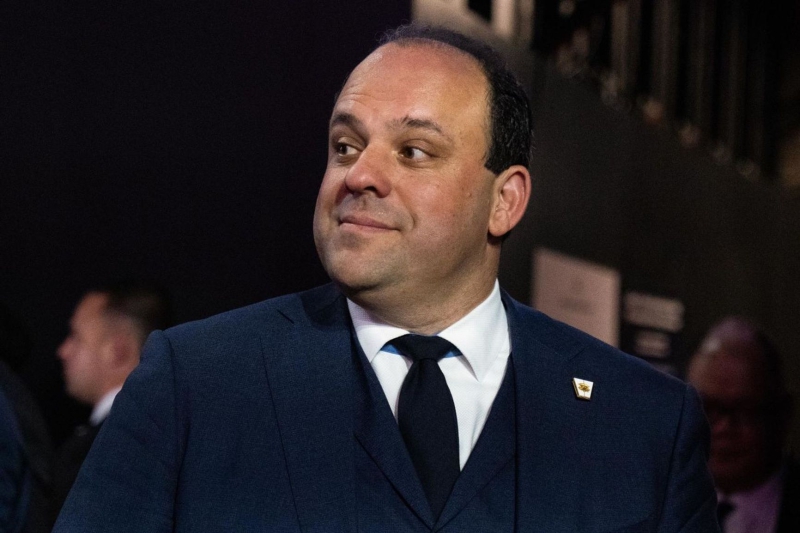
Trump has already announced plans to create a special department aimed at improving government efficiency. The new agency's acronym, DOGE, coincidentally matches the name of the cryptocurrency Dogecoin, which is actively promoted by Elon Musk. Musk will be one of the department's leaders — along with businessman Vivek Ramaswamy, who made his fortune in pharmaceutical startups before running in the 2024 presidential primaries by positioning himself as a pro-Trump alternative in the event that the genuine article was incarcerated before the election.
The two billionaires risk becoming the most unpopular officials in the new administration, at least among American bureaucrats. During his campaign, Ramaswamy promised to dismantle the Department of Education, the FBI, and the IRS while firing 75% of all government employees. Meanwhile, Musk has threatened to cut nearly $2 trillion from the federal budget, which currently stands at $6.5 trillion.
Musk has threatened to cut nearly $2 trillion from the federal budget
But the billionaires will need to negotiate not only among themselves, but also with elected lawmakers. Their proposed department still needs to be created, and funding from Congress will be required to hire its staff. There is also the obvious issue of conflicts of interest — especially true for Musk, whose companies not only receive government contracts and subsidies but are also under investigation by several regulatory bodies. Therefore, it is possible that Musk and Ramaswamy will ultimately only end up serving the new administration as advisors on a voluntary basis, and with limited powers.
On the more establishment side, another potential pairing includes Interior Secretary Douglas Bergam, who will also lead the National Energy Council, and Secretary of Energy Chris Wright, who was behind the so-called shale revolution that helped the U.S. regain its position as the global leader in oil and gas production. Given Trump’s extensive plans in this area — plans he says he intends to begin implementing on his first days in office — it is likely that there will be plenty of work for both of them.
For the position of Secretary of the Treasury, Donald Trump has appointed billionaire Scott Bessent. Bessent previously worked at George Soros's investment fund, Soros Capital Management, where he helped the financier break the British pound in 1992 and the Japanese yen in 2013. He went on to found his own investment fund, Key Square Group, which managed assets worth more than $5 billion. Bessent is one of Trump’s main allies on Wall Street and has donated more than $3 million to Republicans, including to Trump, in the most recent election cycle.
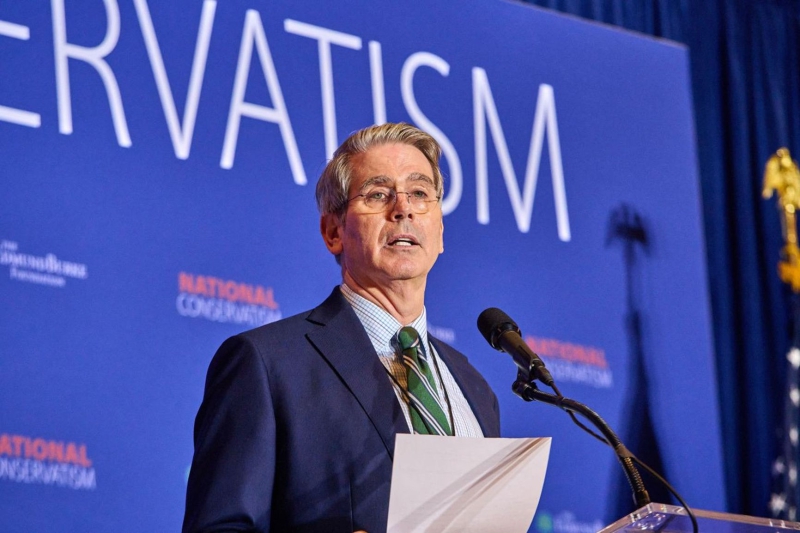
In an editorial published in the Wall Street Journal, Bessent outlined his vision for the economy during Trump's second term: “Restarting the American growth engine, reducing inflationary pressures, and addressing the debt burden from four years of reckless spending.”
Specifically, Bessent called for a review of the banking regulatory system, for efforts aimed at strengthening the dollar, for increasing investments in energy, and for “free and fair” trade, effectively hinting at his support for the import tariff increases proposed by Trump. Bessent also urged the new president to appoint the next Chairman of the Federal Reserve in 2025, a year before Jerome Powell’s term ends.
If confirmed by the Senate, Bessent, who has no experience working in government, will become the first openly gay person to serve at such a high level in a Republican administration. Richard Grenell, who may be appointed as the White House Special Envoy for Ukraine, is also openly gay.
Despite Trump’s prior promise to appoint Robert F. Kennedy Jr. as Secretary of Health and Human Services, the news still turned out to be something of a shock. A member of the influential Democratic family, Kennedy became an outcast in his own clan when he first challenged Joe Biden in the Democratic primaries, and later decided to run for president as an independent.
The matter did not stop there. After failing to garner substantive support within his own nominal party, Kennedy set out on an independent run for the presidency. He ultimately withdrew his candidacy in favor of Trump after the latter promised him oversight of the Departments of Agriculture and Health and Human Services — which oversees the Centers for Disease Control and Prevention, the Food and Drug Administration, and the National Institutes of Health. Kennedy had made a similar offer to Kamala Harris, but only Trump agreed to bring him into his future administration.
For Democrats, he was simply too controversial — and not just because of his anti-vaccine stance. The future head of the U.S. Department of Health and Human Services had previously tried to avoid paying alimony during his divorce, citing a parasitic worm living in his brain. He admitted to having once hit a bear cub with his car and disposed of its body in New York's Central Park. His daughter, in turn, recounted how he had used a chainsaw to sever the head of a whale that had washed up on shore. Finally, Americans were shocked to learn that, during an overseas trip, Robert F. Kennedy Jr. had eaten a dog.
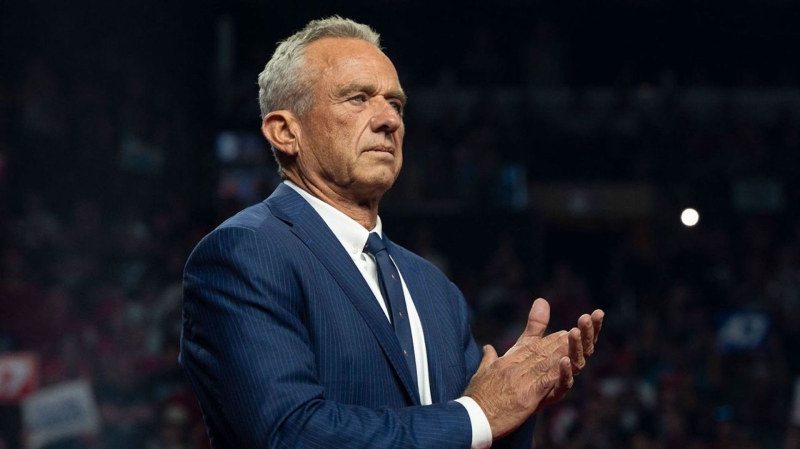
As for his anti-vaccine beliefs, Kennedy is somewhat hesitant about openly expressing them and has only promised to push for a ban on research and clinical trials of new vaccines and medicines for infectious diseases. However, he also claims to believe that pharmaceutical companies are responsible for many chronic illnesses. According to Kennedy, due to inaction by federal authorities, diabetes, obesity, autism, ADHD, sleep disorders, and even infertility are on the rise in the U.S. As secretary, he has promised that one of his first actions would be to ban the fluoridation of water.
Kennedy is already selecting advisors who share his views. For example, cardiothoracic surgeon Mehmet Oz has already been put forward to be the head of the Centers for Medicare and Medicaid Services (CMS), the federal agency responsible for healthcare services to millions of Americans. Oz, who unsuccessfully ran for the Senate in 2022 with Trump’s support, has no experience in government administration. He is mostly known in the U.S. as the host of the popular health TV show “The Dr. Oz Show,” where he promoted, among other things, ineffective treatments for coronavirus and weight loss.
The grand finale of these preliminary appointments was the announcement of three key members of the White House administration. The Office of Legislative Affairs will be headed by James Braid; a close ally of Vice President JD Vance, Braid worked in the Office of Management and Budget during Trump’s first term. Matt Brasso, a deputy political director responsible for the Trump campaign’s efforts in the swing states of Arizona and Nevada, will oversee “political affairs.” Finally, the White House Office of Public Relations will go to Alex Latcham, who has been Trump’s assistant for the last eight years.
This trio will be appointed by the new president without the need for outside approval. However, most of the candidates announced by Trump will need to be confirmed by the Senate before they can take up their positions. Republicans currently hold 53 seats in the Senate, meaning Trump can afford to lose no more than three votes from his own party during the confirmation process. Rejection of presidential cabinet appointments is quite rare, with the last instance occurring in 1989. More often, senators privately warn the president that a nominee will not secure a majority vote, leading to the naming of a replacement without the need for a formal rejection. During Trump’s first term, the Senate refused to approve four of his appointments to various positions.
Trump's appointments could be blocked by just three or four Republican senators
Given the controversy and inexperience of several candidates — Tulsi Gabbard, Robert Kennedy Jr., and Pete Hegseth chief among them — it is expected that at least some Republican senators will refuse to vote for them, and that they, like Matt Gaetz, may have to “voluntarily or involuntarily” withdraw.
The group of Republican Senators most likely to defect from party lines are Lisa Murkowski of Alaska, Susan Collins of Maine, Richard Burr of North Carolina (who faces re-election in 2026), and former leader Mitch McConnell of Kentucky, who retains influence in the party despite his public conflict with Trump. A wildcard is the new senator from Utah, John Curtis, who replaced Mitt Romney — a vocal Trump critic.
For many senators, confirming these candidates will function as a loyalty test to Trump, and overseeing party discipline will fall to the new leader of the faction — Senator John Thune of South Dakota. Thune, previously McConnell’s right-hand man, is a representative of the Republican mainstream — unlike his runner-up in the intra-party race for this position, pro-Trump Senator Rick Scott of Florida. Understanding that some of his nominees may not receive majority support even in the Republican-controlled Senate, Trump has already asked the body to delay the start of its new session, a move that would allow him to make temporary appointments without their open approval.
The candidates announced by Trump so far only allow for outsiders to begin drawing in a general outline of the policies his future administration will likely pursue. Equally important are the people who will occupy lower-level positions: heads of departments and divisions within ministries and federal agencies. It is these people who will largely determine the implementation of key directives.
During the presidential campaign, Harris and the Democrats heavily criticized Trump for his connection to Project 2025 — a report by conservative NGOs proposing a radical overhaul of the relationship between the executive branch and the president. Under its vision, many agencies and federal bodies — such as the FBI and the Department of Justice — would lose their traditional autonomy and become directly subordinate to the president.
Trump himself has categorically denied any association with Project 2025, attempting to appear more moderate in the eyes of voters. Of the many co-authors of the project, only Brendan Carr has been appointed to a position in the new administration, where he will head the Federal Communications Commission.
The influential position of head of the White House Office of Management and Budget has again been given to self-proclaimed “Christian nationalist” Russell Vought, who worked on Project 2025. Additionally, the head of the Heritage Foundation, Kevin Roberts, one of the main architects of the project, stated that among Trump's appointees, “100% are friends of Heritage.”
One of the key components of Project 2025 was the proposal to bring the federal bureaucracy under direct presidential control. Until the late 19th century, most positions in federal agencies were distributed by the president through a patronage system — a process fraught with corruption. However, after reforms were introduced in 1883, a class of professional civil servants began to emerge.
By the early 1980s, when another major reform was carried out, 90% of federal positions became part of the civil service system. Of the 2.3 million people working for the federal government, only around 4,000 political appointees change from president to president.
Trump's supporters argue that this continuity has created a system of unaccountable bureaucracy, which develops its own collective interests. Conspiracy theorists refer to this bureaucracy as the “Deep State.” Towards the end of his first term, Trump signed an executive order that effectively moved up to 50,000 bureaucratic positions into the category of political appointees, enabling the president to carry out large-scale purges of the federal apparatus. However, after Trump left the White House, the executive order was reversed by new president Joe Biden.
But as Trump prepares to take back the Oval Office, the president-elect and his allies are once again communicating their intention to tame the federal bureaucracy by replacing Democrat-friendly civil servants with loyal personnel — many of whom spent the past four years at conservative NGOs working to bring about Trump’s return. Under the circumstances, it is more than possible that Trump’s old executive order will be reinstated — initiating a major shake-up that would threaten to return business in Washington to its 19th century ways.

